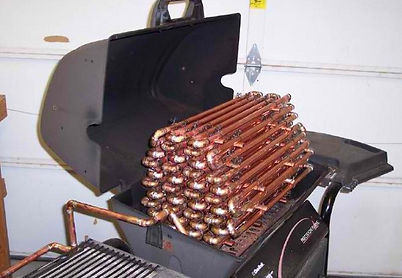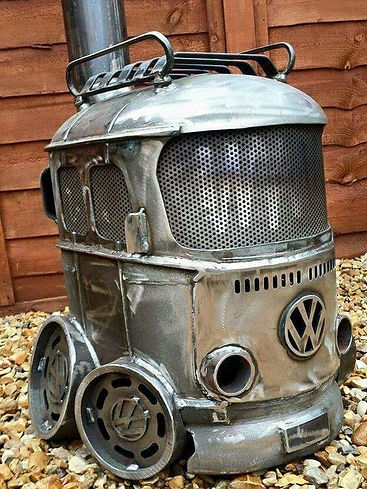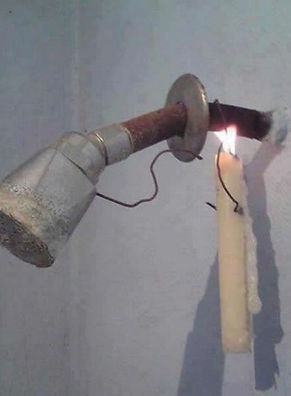Sacramento Areas
REPAIR • INSTALLATION • REPLACEMENT
Low Prices • No Gimmicks
Crazy Facts | Water Heater Pros | Sacramento, Ca
Crazy Facts

Six Things About Water Heaters,
I Bet You Didn't Know.
Every day, many homeowners take their water heaters for granted. We often forget them until we run out of hot water (especially during a shower). We thought We would share some fun facts about water heaters:
1) ENERGY USAGE
Around 1/4 of your home's energy usage comes from your water heater, which heats water for laundry, showers, washing dishes, and more. On average, an American household uses between 80 and 120 gallons of hot water every day.
2) THE FIRST WATER HEATER
The idea of a water heater first emerged in London in 1868 when a painter figured out how to heat cold water by placing a gas burner at the bottom of the water pipes. While working for George Westinghouse, this inspired a Norwegian mechanical engineer, Edwin Ruud, to invent a gas actuator valve that created the first offered water heater, an instantaneous (tankless) water heater. Yes, you heard that right: a tankless water heater was invented before the tank type we all know and grew up with; the idea was brought to Pittsburgh, Pennsylvania, where it was patented.
3) EXPLODING WATER HEATERS
The myth of the exploding water heater is rare but genuine. While a water heater can explode, there is a simple way to prevent it. This includes installing a temperature and pressure safety valve, which will prevent overheating if the gas regulator valve fails.
4) A WATER HEATERS LIFE SPAN
A typical tank water heater will last 9-12 years, while a tankless water heater will last 25+ years with proper maintenance.
5) OTHER NAMES USED
-
North America: “tankless water heaters” or “on-demand water heaters”
-
The U.K.: “multipoint geysers”
-
Australia and New Zealand: “instantaneous hot water units”
-
Argentina: “calfones”
6) TYPICAL DAILY HOT WATER USAGE
On average, a person taking a shower will use 10-20 gallons of water, a person taking a standard bath will use 20-30 gallons of water, a person doing a load of laundry will use 15-25 gallons of water, a person doing the dishes will use around 2 gallons of water per minute, and a dishwasher will use around 7-15 gallons per load.


COLD WATER WEIGHS MORE THAN HOT WATER
A liter of cold water weighs more than a liter of hot water. Most liquids, not all, become heavier as they grow colder. The answer all boils down and may cool down to density.
The colder the water, the denser it is. Density generally determines the weight of two liquids with the same volume. It is quantified by mass divided by volume, and mass is the same as weight on Earth. In the case of water, aka H2O, the weight is measured by the number of H2O (2 parts hydrogen, 1 part oxygen) molecules present in a given volume.
Imagine conducting a simple experiment with two bottles, each holding 1 liter of water. One bottle is filled with cold water, and the other with hot. When you pick them up, you'll notice that the bottle with cold water is slightly heavier. This is because the molecules in hot water are spaced further apart, meaning there are fewer molecules in any given volume, resulting in less mass, or weight if you prefer.

Hot vs. Cold Water: Boiling Experiment
Purpose:
This experiment aims to determine whether hot or cold water will boil first if heated under the same conditions.
Hypothesis:
Common sense would yield that the hotter the water, the quicker it should boil because it is already closer to the boiling point. Still, the hypothesis of this experiment will stray away from such nonsense and contend that the colder water will boil before the hot water because its rate of temperature will increase faster than the hot water and ultimately pass it up.
Equipment:
This experiment will require a pot, a heat source (Stove), a measuring cup, a stopwatch, a cooling source (fridge), a pen and paper, a source to get hot and cold water, a tea bag, and a coffee cup.
Procedure:
First, measure three cups of water and place them in the refrigerator to chill. Then, measure three cups of hot tap water and put them in the pot, turning on the flame while starting the stopwatch.
When boiling occurs, stop the watch and record the time. Dry the pot and allow it to return to room temperature. Repeat the same process once cold water has been allowed to chill, record the results, and compare.
Observations:
Water Type: the amount of time water took to boil
Hot Tap Water 3 Cups, 3 minutes, 4 seconds
Cold Tap Water 3 Cups, 4 minutes, 17 seconds
The room temperature was 69 degrees Fahrenheit, and the barometer registered 30.21 inches.
Conclusion:
The experiment has shown that common sense again prevails, and hot water boils much quicker than cold water.

WHY IS HOT WATER ALWAYS ON THE LEFT SIDE
When indoor plumbing was introduced in the 19th century, a hand pump brought water into the home. At the time, the hand pump only produced one option: cold water. Since most people are right-handed, the pump was placed on the right side of the sink.
Instant hot water was introduced many years later. With the cold water pump already occupying the right side of the sink or tub, the hot water faucet was logically placed on the left side of the cold water faucet. There you have it! Hot water valves (faucets) are always found on the left and cold on the right.

HOT WATER CAN FREEZE FASTER THAN COLD WATER
This phenomenon has been observed for centuries but was not properly introduced to the scientific community until 1969. Since then, it has commonly been called the Mpemba effect, named after the Nigerian high school student who rediscovered it in the 1960s.
Mpemba first noticed this 1963 when making ice cream for a school project. The students mixed boiling milk with sugar and were told to let it cool before refrigerating it. Impatient, Mpemba disregarded directions and immediately put his milk in without letting it cool. Inexplicably, his milk cooled before the rest of the class! But his physics teacher said this was not possible.
He later found that the local ice cream vendors did the same thing to speed up the freezing process! Mpemba was still criticized at school for his "bogus" science, even though he had hard evidence to back his theory up. A physics professor later visited the high school and heard what Mpemba had to say. He replicated the process and couldn't explain the phenomenon, so he and Mpemba published their results in 1969.


Did you know?
The first water heaters were tankless!
A copper coil was heated by the burners below as hot water demand was needed.







WATER-
HEATERS

